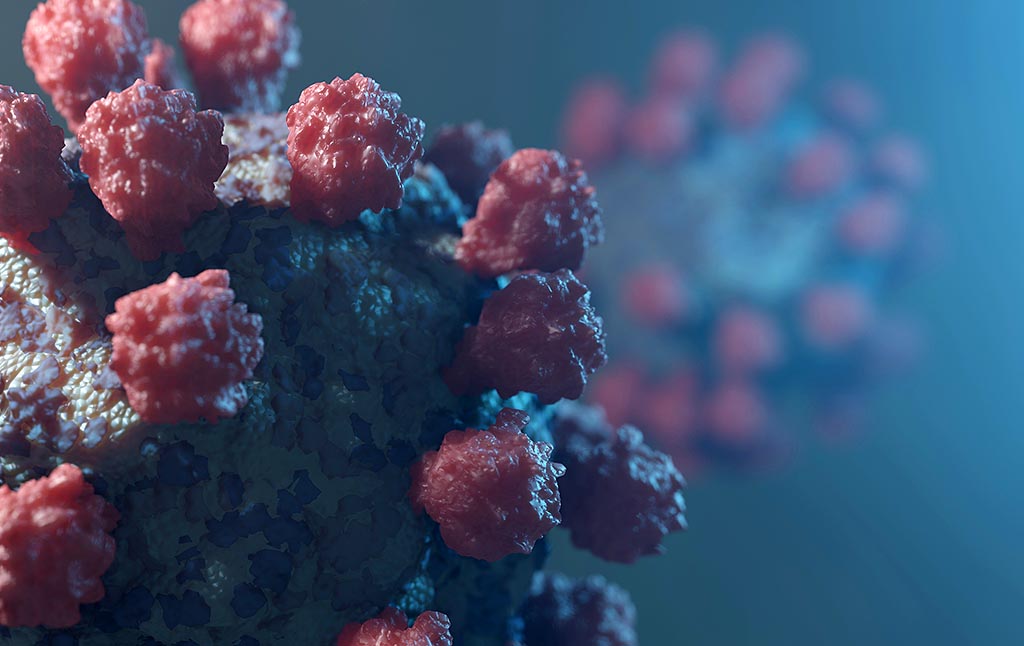By C.R.
According to the GISAID portal, a case of the Indian version of the new coronavirus has been confirmed in Slovenia, which offers open access to the genomic data of the new coronavirus. It was confirmed at the Institute of Microbiology and Immunology of the Medical Faculty of the University of Ljubljana in a sample taken on April 20th, the institute explained.
Miroslav Petrovec, the head of the institute, confirmed to STA that the Indian version was confirmed in one of the previously deposited sequences at the institute. They confirmed it “for back” on a sample of a person who was confirmed to be infected with the new coronavirus on April 20th and had returned from India. According to the institute, the Indian version was confirmed during a re-analysis of Slovenian samples, which was performed after the algorithm for classifying pango genetic versions of the new coronavirus and was updated on May 11th, because version B.1.617.2 or the Indian version declared a new worrying genetic version.
However, in the last screening sequencing of viral variants performed on 576 samples taken between April 26th and May 2nd, an Indian genetic variants were not confirmed.
At the Institute of Microbiology and Immunology, in the last screening sequencing of the viral variants, all mutations characteristic of the English variant were found in all groups of samples. The proportions of individual mutations in this screening period range from 85 to 99 percent. According to their findings, the share of the English version among the samples included in the screening sequencing is increasing and reached 90 percent of all included samples in the screening period between April 26th and May 2nd.
The genetic version, which has been predominant in Slovenia so far, was confirmed at the institute in a 10 to 15% share during this screening period. However, no new cases of the South African or Brazilian version, nor the Nigerian version or the most widespread version in the French overseas community of Mayotte, were confirmed between April 26th and May 2nd. The California or New York versions have not yet been confirmed in Slovenian samples, the institute said.
Between February 24th and May 4th, the institute, in cooperation with the National Institute of Public Health, also sequenced 147 genomes of the new coronavirus after infection in vaccinated individuals. Among them, there was 84 people more than two weeks after vaccination with two doses of BioNTech/Pfizer, three were vaccinated with Moderna, and 60 people more than three weeks after vaccination with one dose of AstraZeneca. According to the Institute of Microbiology, genetic variants, which are common in Slovenia, have been shown in the vaccinated people in approximately the same proportion as they occur in the rest of the population.
Maja Rupnik, head of the research department at the National Laboratory for Health, Environment, and Food (NLZOH), explained to STA regarding the Indian version, that according to the data from Great Britain, where several cases of the Indian version of the new coronavirus were already detected, it can be concluded that it is similarly contagious as the English version and also that it does not cause a more severe course of the disease. As she explained, they do not have relevant information from India, where this version is currently a serious focus, as the country is primarily trying to control the situation, and find it more difficult to carry out analyses.
According to her, data known so far are encouraging. According to the data the Indian version has not been changed in such a way that the antibodies that an individual has due to suffering from covid-19 or vaccination would not work. According to Rupnik, it is not possible to predict whether the Indian version will over time displace the currently prevalent English version of the new coronavirus.
Laboratories sequencing the genomes of the new coronavirus enter this information on the GISAID portal. It is a global scientific initiative and a primary resource that offers open access to the genomic data of the new coronavirus.
On Thursday, a press conference on the covid-19 is expected to present the situation regarding versions in Slovenia.
The World Health Organisation (WHO) announced on Monday that the Indian version of the new coronavirus is more contagious, so it is a cause for concern. It is a version of the new coronavirus marked B.1.617, reports STA.

